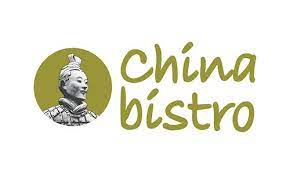Delhi High Court: The plaintiff filed a suit alleging infringement by WOW Momo Foods Limited (defendant) of its registered trade mark ‘CHINA BISTRO’ by adding the word ‘BISTRO’ under ‘WOW CHINA’. C. Hari Shankar, J., held that the defendant, as well as all others acting on its behalf, shall stand injuncted from using the mark/name or ‘WOW CHINA BISTRO’ as a trademark, label, device, trading style, trade name, logo, keyword, meta tag, domain name, or in any other manner, identical or deceptively similar to the Plaintiff’s mark ‘CHINA BISTRO’ till further orders to be passed in the suit. The Court clarified, however, that the defendant would be entitled to use WOW! CHINA and there is no interdiction in that regard.
The plaintiff’s mark is ‘CHINA BISTRO’ and the defendant, till 2019, was using the mark WOW! CHINA. However, in 2019, the defendant added, below the word China in the logo, the word “BISTRO”. The mark, thus, became ‘WOW CHINA BISTRO’. The plaintiff’s case is that with the addition of “BISTRO” below “CHINA” in the mark, the defendant’s mark became deceptively similar to that of the plaintiff, since both now read CHINA BISTRO, with the “WOW!” above “CHINA” in the defendant’s mark being the only differentiating feature. Both the plaintiff and the defendant run upmarket restaurants offering ‘Chinese’ or ‘Indo Chinese’ cuisine.
The plaintiff’s case is that this added word “WOW!” would not in any way mitigate the possibility of confusion or deception between the two marks, from the point of a customer of average intelligence and imperfect recollection. Interestingly, while the plaintiff’s mark stands, as already noted, registered in favour of the plaintiff in class 43 w.e.f. 15-12-2003 and, thereafter, w.e.f. 02-04-2015, the defendant has no registration of the impugned mark.
The competing marks of the plaintiff and defendants is respectively as follows:
On the aspect of confusing or deceptive similarity, the Court noted that there can, prima facie, be no doubt that the words CHINA BISTRO, in the case of the plaintiff’s mark, and the words WOW! CHINA BISTRO, in the case of the defendant’s mark, constitute their essential feature. A customer of average intelligence and imperfect recollection comes, one day, across the plaintiff’s CHINA BISTRO eatery. A few days later, he chances across the defendant’s WOW! CHINA BISTRO outlet. He is not a customer who is aware of the reputation of one mark or the other, for we are dealing, presently, with infringement, not passing off. Thus, the likelihood of the customer being given to wonder whether the two outlets are not managed by one person, or whether there is no association between the two, is apparent.
On the aspect of entitlement of plaintiff to plead infringement, the Court further noted that the plaintiff would not be able to urge infringement of a mark of another person solely because the said mark uses the word “CHINA” or the said mark uses the word “BISTRO”. However, that would not inhibit the plaintiff from alleging infringement of the mark of another person on the ground that it is deceptively similar to the composite mark CHINA BISTRO when seen as a whole. Thus, disclaiming exclusivity in respect of the individual parts of a mark would not ipso facto result in disclaiming exclusivity over the composite mark as a whole. Two ordinary words, though completely lacking in distinctiveness when seen individually may, when combined together, be distinctive.
On the aspect of disclaime, the Court opined that mere insertion of disclaimers with respect to the words “CHINA” and “BISTRO” in the registrations granted to the plaintiff for the composite marks CHINA BISTRO would not disentitle the plaintiff from claiming exclusivity for the composite mark.
The Court observed that at a prima facie stage, the plaintiff is entitled to the benefit of Section 31(1)17 of the Trade Marks Act. The court would, therefore, presume, unless it is demonstrated to the contrary by the defendant, that the mark is valid. Of course, it would always be open to the defendant to show that the mark is lacking in validity, but the onus in that regard would be on the defendant, in view of Section 31(1) of the Trade Marks Act. Thus, in the facts of the present case, it would be for the defendant to establish that the mark CHINA BISTRO is lacking in distinctiveness, to disentitle the plaintiff to claim exclusivity over the said combined/composite mark. The composite mark CHINA BISTRO cannot be said to be lacking in distinctiveness, when seen as a whole, in the absence of any evidence or material to that effect led by the defendant.
The Court held that when compared as a whole, the court is prima facie convinced that the individual marks and are deceptively similar, as the textual components of the two marks, which constitute their essential and distinctive features, are deceptively similar to each other. In fact, they are identical, the only difference between the two marks being that, in the defendant’s mark there is an added prefix “WOW!”.
[Foodlink F&B Holdings India Private Limited v. Wow Momo Foods Limited, 2023 SCC OnLine Del 4719, decided on 03-08-2023]
Advocates who appeared in this case :
Mr. Chander Mohan Lall, Sr. Adv. with Mr. Sarthak Sachdeva, Mr. Ashish Batra, Ms. Ananya Chugh, and Mr. Wattan Sharma Advocates for the Plaintiff;
Mr. Shuvasish Sen Gupta, Mr. Kumar Vivek Vibhu and Mr. Abhrajit Roy Chowdhry, Advocates for the Defendants.





